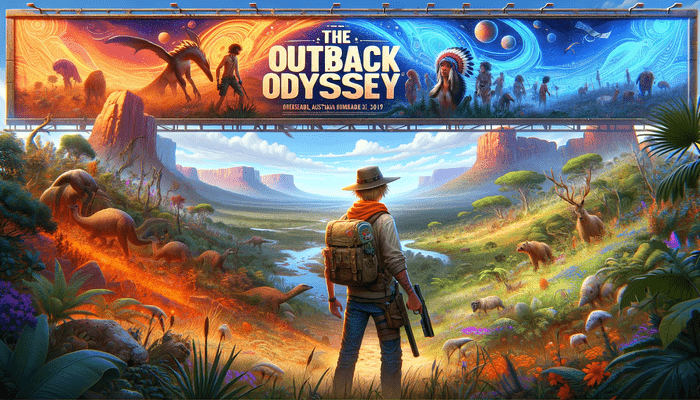Gaming for Good: How Video Games Are Being Used for Social Impact and Global Education
Video games have come a long way since their inception. Once seen primarily as a form of entertainment and escapism, they are now being recognized for their potential to drive social impact and contribute to global education. This article explores the transformative power of video games and how they are being harnessed to bring about positive change in society.
Video games have become a pervasive part of modern culture, captivating millions of players worldwide. While they have often been criticized for their addictive nature or blamed for promoting violence, recent developments have shed light on the positive aspects of gaming. From fostering empathy and perspective-taking to enhancing critical thinking and problem-solving skills, video games have the potential to be a force for good.
The power of video games
Video games possess unique qualities that make them powerful tools for social impact and education. They have the ability to immerse players in rich and interactive virtual environments, offering engaging experiences that can evoke emotional responses and shape behavior. The interactivity and agency provided by video games create a sense of ownership and investment in the outcomes, making them ideal mediums for learning and inspiring action.

Gaming for social impact
Empathy and perspective-taking
One of the remarkable aspects of video games is their ability to foster empathy and perspective-taking. By placing players in the shoes of diverse characters and presenting them with challenging scenarios, games can cultivate understanding and compassion for different experiences and perspectives. This empathetic engagement has the potential to break down stereotypes, reduce prejudice, and promote social cohesion.
Health and well-being
Video games have also been utilized to address health and well-being challenges. Gamified interventions have shown promising results in areas such as physical rehabilitation, mental health support, and behavior change. Through interactive gameplay, individuals can learn healthy habits, track their progress, and receive personalized feedback, making the process enjoyable and effective.
Environmental awareness
Environmental issues are increasingly urgent, and video games have emerged as a tool for raising awareness and inspiring action. Games centered around environmental themes provide players with opportunities to explore the consequences of human actions on the planet and engage in virtual conservation efforts. This immersive experience can spark a sense of responsibility and encourage individuals to adopt sustainable behaviors.
Gamification in education
Enhancing learning experiences
Incorporating elements of gamification into education has the potential to revolutionize traditional learning methods. By introducing game-like elements such as points, achievements, and progression, educators can enhance student engagement and motivation. Gamified learning experiences promote active participation, instant feedback, and a sense of accomplishment, leading to improved knowledge retention and deeper understanding.
Problem-solving and critical thinking
Video games inherently require players to solve problems and think critically to progress. These cognitive skills are essential in today’s complex world, and integrating game-based learning approaches can nurture these abilities. Through challenges and puzzles presented in games, students can develop their problem-solving and critical thinking skills in a dynamic and interactive manner.
Cultural Understanding and global education
Global education is crucial in an interconnected world, and video games can play a significant role in promoting cultural understanding and global awareness. Games that explore different cultures, historical events, or societal issues allow players to gain insights into diverse perspectives. This exposure fosters tolerance, empathy, and appreciation for cultural diversity, preparing individuals to navigate an increasingly globalized society.
What are the benefits of video games for kids?
Video games, when used in moderation and with appropriate content, can offer several benefits for children. While parental supervision and age-appropriate game selection are crucial, video games can provide educational and developmental advantages.
Cognitive development
Video games can stimulate cognitive development in children. They often require problem-solving, critical thinking, and decision-making skills. By engaging in gameplay, kids can enhance their ability to strategize, plan, and analyze information. These cognitive skills can have positive impacts on academic performance and real-life problem-solving situations.
Hand-eye coordination and motor skills
Many video games require precise hand-eye coordination and fine motor skills. Controlling characters, navigating obstacles, and using controllers or keyboards can improve dexterity and hand-eye coordination in children. These skills can have practical applications in activities such as sports, playing musical instruments, or even typing.
Social interaction and collaboration
Certain video games offer multiplayer modes or online features that promote social interaction and collaboration. Kids can play together with friends or join online communities, fostering teamwork, communication, and social skills. Cooperative gameplay encourages children to work together, negotiate, and develop effective communication strategies.
Creativity and imagination
Some video games provide tools or platforms that allow children to create their own content, such as building virtual worlds or designing characters. These creative aspects of gaming encourage imagination, artistic expression, and problem-solving in a playful and interactive manner. Kids can unleash their creativity and explore their ideas through the game’s creative features.
Stress relief and relaxation
Video games can serve as a form of relaxation and stress relief for children. Engaging in enjoyable gameplay can help them unwind, release tension, and temporarily escape from everyday pressures. It can provide a healthy outlet for emotional expression and contribute to overall well-being.
Learning opportunities
Certain video games are specifically designed for educational purposes, offering learning opportunities in various subjects such as math, science, language, or history. These educational games can make learning more enjoyable and engaging for kids, helping them acquire knowledge and skills in an interactive and immersive manner.
Cultural and global understanding
Many video games feature diverse characters, settings, and storylines that expose children to different cultures, perspectives, and global issues. By interacting with these elements in games, kids can develop a broader understanding of the world, cultivate empathy, and appreciate cultural diversity.
Motivation and goal setting
Video games often incorporate goal-oriented gameplay, providing clear objectives and rewards for achievement. This structure can help children develop goal-setting skills, perseverance, and a sense of accomplishment when they overcome challenges or achieve milestones in the game. These qualities can transfer to real-life goal setting and motivation.
In conclusion, video games, when used responsibly and with appropriate content, can offer several benefits for children. From cognitive development and motor skills to social interaction and creativity, video games can provide a range of advantages that contribute to a child’s overall growth and development.

Examples of video games for social impact and global education
Minecraft: Education Edition
Minecraft: Education Edition is a popular sandbox game that has been adapted for educational purposes. It provides a platform for students to collaborate, build, and explore virtual worlds while simultaneously learning various subjects. Whether constructing historical landmarks, exploring ecosystems, or solving math puzzles, Minecraft sparks creativity, critical thinking, and teamwork skills.
Foldit
Foldit is an innovative video game that engages players in protein folding puzzles. By solving these puzzles, players contribute to real scientific research, helping scientists understand protein structures and potentially discover new cures for diseases. Foldit demonstrates how video games can harness collective intelligence to solve complex problems and make tangible contributions to scientific advancements.
Never Alone
Never Alone is an emotionally impactful game that explores the rich cultural heritage of the Iñupiat, an indigenous community in Alaska. Players accompany a young Iñupiat girl and her Arctic fox companion on a journey through an atmospheric and narratively-driven experience. Through the game’s captivating storytelling, players gain insight into the community’s traditions, folklore, and challenges, promoting cultural understanding and appreciation.
Challenges and considerations
While video games hold immense potential for social impact and global education, several challenges and considerations must be addressed. Ensuring accessibility and inclusivity is crucial to prevent excluding individuals with disabilities or limited access to technology. Ethical considerations, such as avoiding stereotypes or promoting harmful behavior, should guide the development and implementation of games for social impact.
Conclusion
Video games are more than just entertainment; they have become powerful tools for social impact and global education. By leveraging the immersive and interactive nature of games, we can foster empathy, enhance learning experiences, and address pressing social and environmental challenges. As we continue to unlock the potential of video games, we have the opportunity to create a more compassionate, knowledgeable, and socially conscious world.
Paper writing services can be a great resource when it comes to researching the social impact of video games. By utilizing this service, you can access research and statistics that inform your paper with current, evidence-based facts. Additionally, utilizing an expert’s knowledge in the field will help strengthen your arguments by providing a more comprehensive understanding of the topics at hand.
Frequently Asked Questions (FAQs)
Can video games really make a difference in society?
Yes, video games have shown their ability to make a positive difference in society. They can foster empathy, address health and well-being challenges, raise awareness about environmental issues, and enhance learning experiences.
Are video games only suitable for entertainment purposes?
While video games are often associated with entertainment, their potential extends beyond that. Video games can be harnessed for educational purposes, social impact, and even scientific research, showcasing their versatility and broad applications.
How can educators incorporate video games into the classroom?
Educators can incorporate video games into the classroom by integrating gamified learning experiences, utilizing educational video games, and leveraging game-like elements to enhance student engagement, motivation, and learning outcomes.
What are some potential drawbacks of using video games for social impact?
Some potential drawbacks include accessibility challenges, ethical considerations, and the need for careful game design to avoid unintended consequences. Additionally, it’s important to consider individual preferences and ensure a balanced approach to the use of video games for social impact.
Where can I learn more about video games for global education?
To learn more about video games for global education, you can explore resources such as educational websites, research articles, conferences, and organizations dedicated to game-based learning and global education initiatives.






